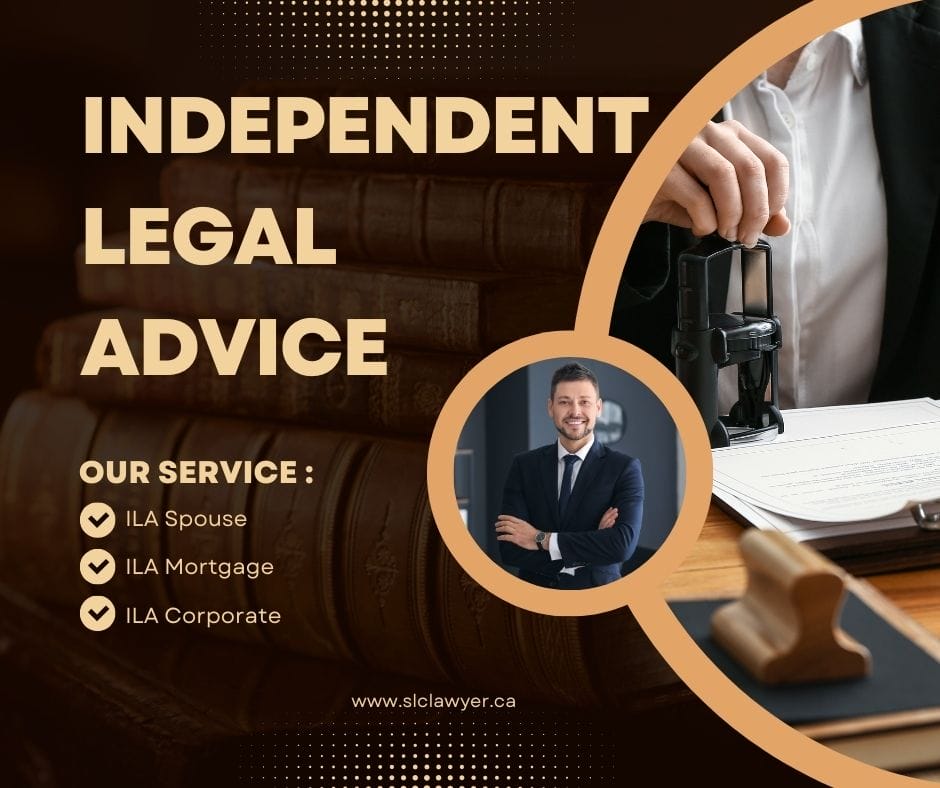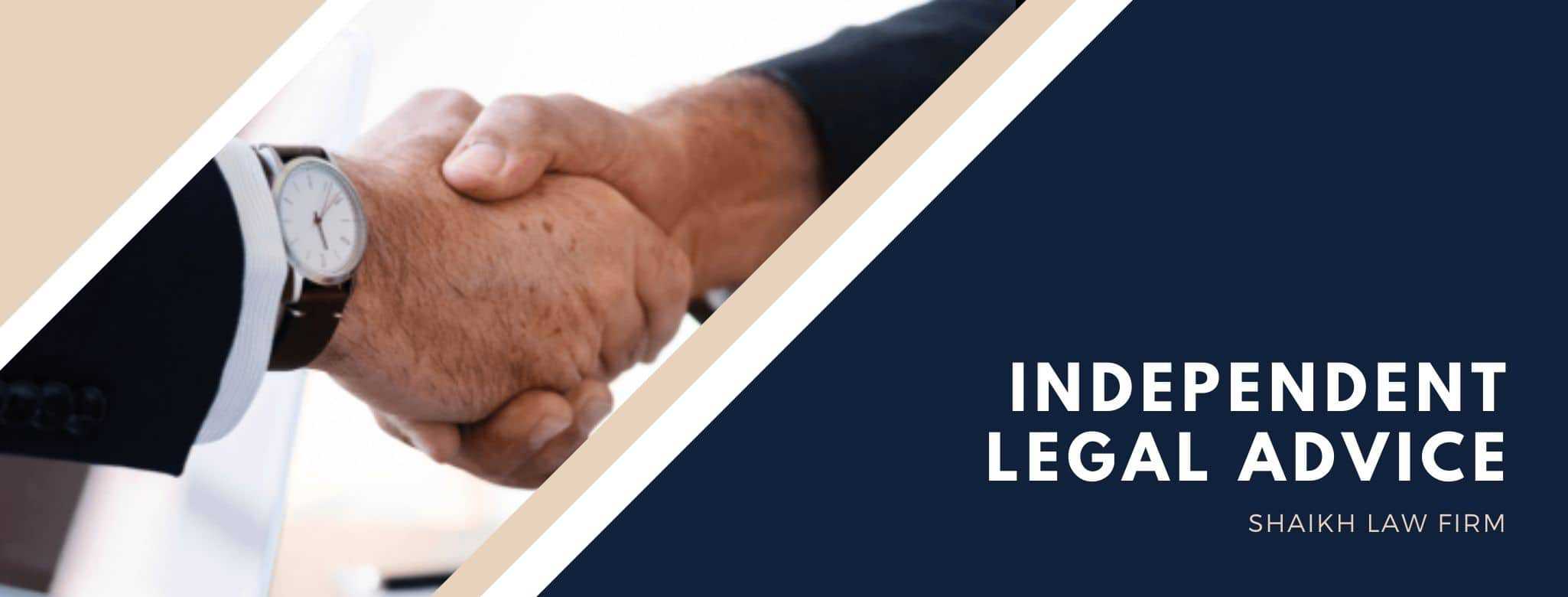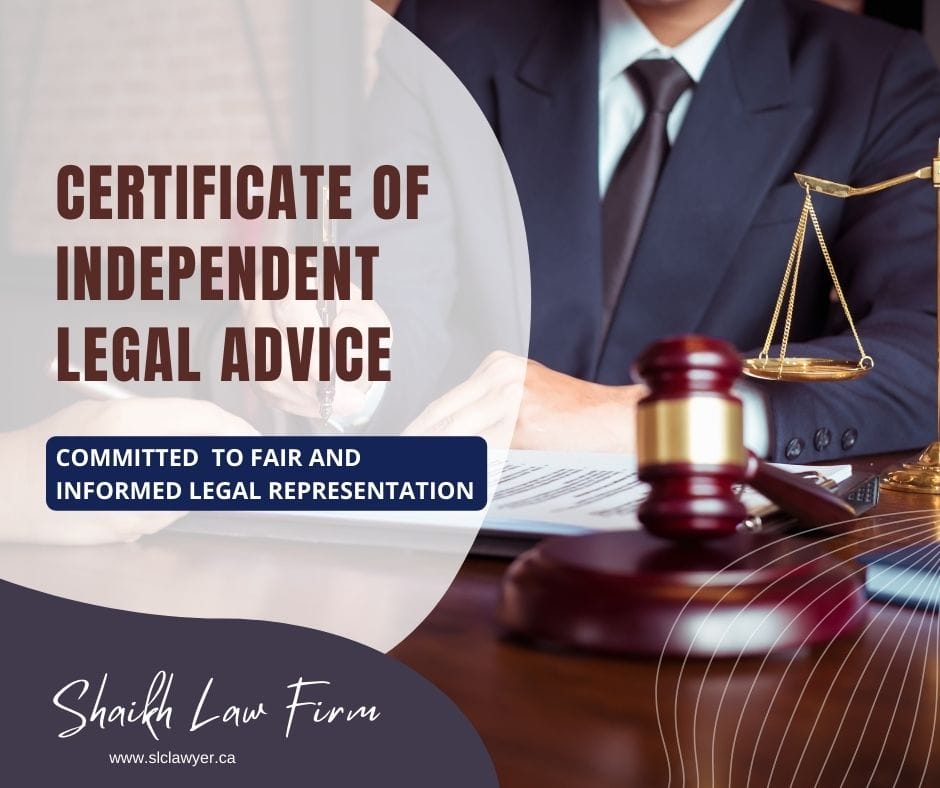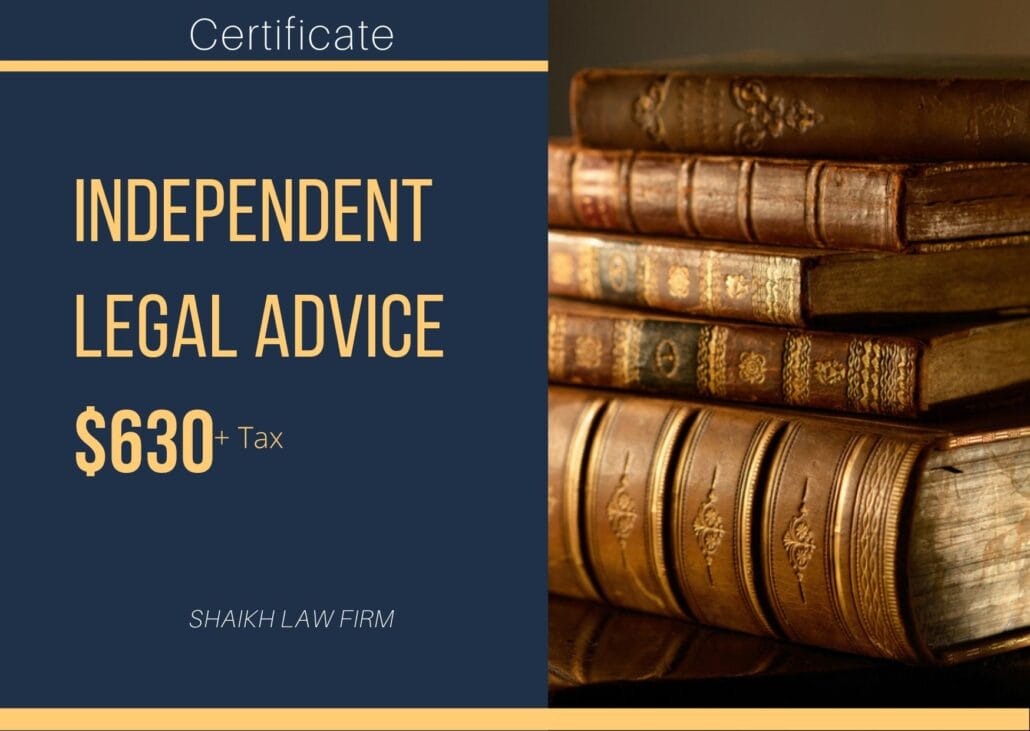What is Independent Legal Advice (ILA)?
ILA is legal advice provided by a lawyer to a client, independent of any other parties involved in a legal transaction or agreement. It ensures that the client fully understands the terms and implications of the agreement.
Why do I need Independent Legal Advice?
ILA is important to ensure that you fully understand your legal rights and obligations in an agreement, especially in situations where there might be a conflict of interest or a joint retainer. It helps in making informed decisions and protecting your legal interests.
Can the same lawyer provide ILA to all parties in an agreement?
No, ILA should be provided by separate lawyers to each party to ensure that the advice is unbiased and tailored to the specific needs and interests of each individual.
How long does it take to get ILA?
The time required can vary depending on the complexity of the agreement and the availability of the lawyer. It’s best to consult with a lawyer as early as possible to ensure there’s ample time for a thorough review.
Is ILA mandatory?
While not always legally mandatory, ILA is highly recommended in many situations to ensure legal protection and informed consent. In some cases, such as certain family law agreements, it may be a legal requirement.
How much does ILA cost?
The cost of ILA can vary based on the complexity of the agreement and the rates of the lawyer. It’s advisable to discuss fees with your lawyer upfront.
At Shaikh Law Firm, ILA or a certificate of independent legal advice costs $630 plus HST. This fee includes a detailed review of the agreement and all related legal documents and attachments.
In-depth consultation covering the agreement and all legal documents.
Certificate of Independent Legal Advice Family Law?
Lawyers will frequently ask clients to seek independent legal advice when signing agreements about family matters. This is because family law involves some really important clauses. They are contractually binding and usually last forever. The impact of the clauses is significant, such as the payment of support to a spouse, how a couple plans to divide property and pensions and how the children are cared for. Therefore, each party needs to fully understand the implications before they sign.
Certificate of Independent Legal Advice Real Estate: If clients are entering into a real estate contract, it is likely to be one of the biggest transactions of their life, but real estate laws are complex, and individuals should be sure that they fully understand the contract that they are entering into. It is best to consult a lawyer to seek independent legal advice before buying or selling a property.
Certificate of Independent Legal Advice spouse: In a situation where one spouse is named on the title of a mortgage and the other spouse is not, it may be a requirement of the bank that the unnamed spouse should receive a Certificate of Independent Legal Advice. This ensures that the unnamed spouse understands their rights with regard to the matrimonial home and mortgage.
When should I get Independent Legal Advice? In some situations, you should take independent legal advice to make sure you fully understand the implications of the contract you are signing and the transaction you are entering into. You may be waving a right to something or giving your consent to something that you do not fully understand. Once you have signed the contract it is legally binding, and you cannot change the terms. It is important to understand your rights and responsibilities from the outset.
What happens when I get independent legal advice? When you seek independent legal advice, you will find a lawyer who will meet with you to discuss the process. Your lawyer will then review the documentation, and when you are happy to agree to the terms, the lawyer will witness a signature and issue a certificate to state that you have received independent legal advice and have understood the information you have been given.
How can I prove that I got independent legal advice? An Independent Legal Advice letter will be issued and signed by yourself to prove that you have received and understood the advice. You can then show this to a third party if the independent legal advice was a condition of the transaction.
What if I cannot afford to pay a lawyer to give me independent legal advice? If you are on a low income you may be financially eligible to receive Legal Aid in Ontario. You will need to take a financial test to find out your eligibility. If you are entitled to Legal Aid, then you will be given a certificate, which can then be used to pay a lawyer who accepts Legal Aid clients. This is only available in certain areas of the law.
What is the purpose of independent legal advice? It is the responsibility of the lawyer to provide independent legal advice (“ILA”) to ensure that his/her client understands and appreciates the nature, risks, liabilities, and benefits of the document about to be signed. The lawyer should explain the document to the client even if the client has read the document prior in time. If the lawyer is of the opinion that the client is being forced to sign the document or agreement, then the lawyer should not issue the certificate of independent legal advice.
Can you provide Independent legal advice (ILA) to a guarantor or surety? The Lawyer for a guarantor must review and explain to the guarantor the terms of the guarantee as well as highlighting the nature, effect, risks and obligations under the guarantee, including the liability that will be incurred and the manner in which such liability may be enforced, thereby allowing the guarantor to make an informed and considered decision. The Lawyer providing Certificate of Independent Legal Advice (“ILA”) to a Guarantor (Surety) must ensure that the guarantor appreciates the nature of and risks associated with providing the proposed guarantee as well as the likely practical consequences of not providing the guarantee.
The purpose of ILA is to prevent a lender from taking unfair advantage of a guarantor, thereby reducing disparities in bargaining power. However, practically speaking, in most cases, the client feels obligated to enter into the Guarantee for various other, and hence, it becomes extremely difficult for the lawyer to decide if the guarantor is freely and voluntarily signing the guarantee or not.




